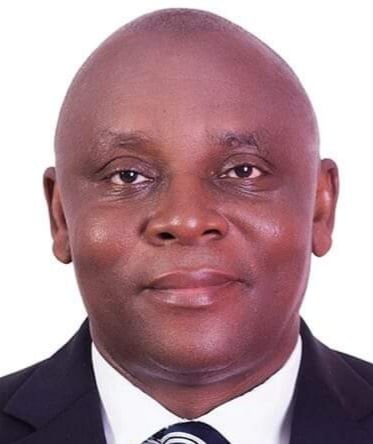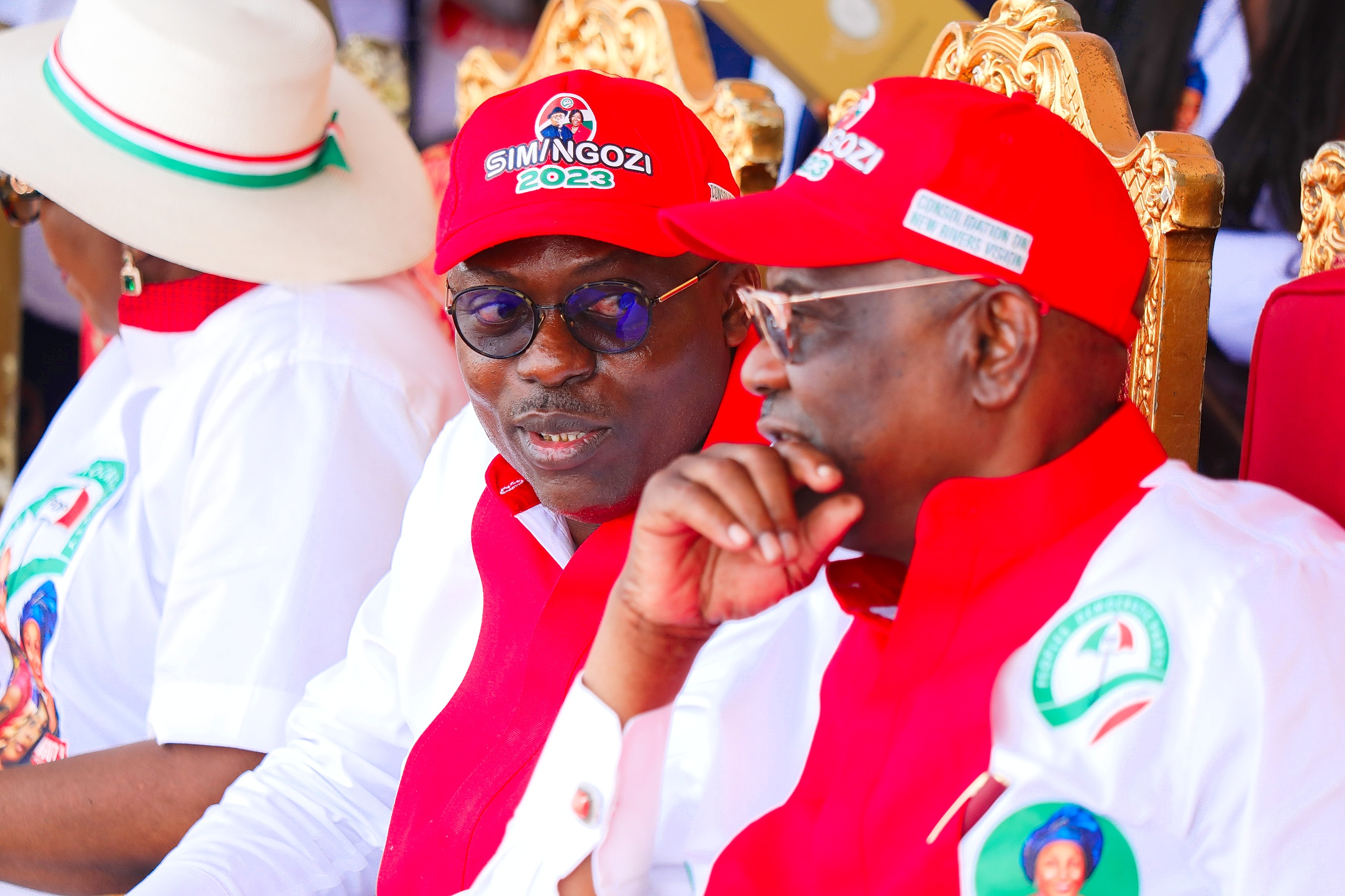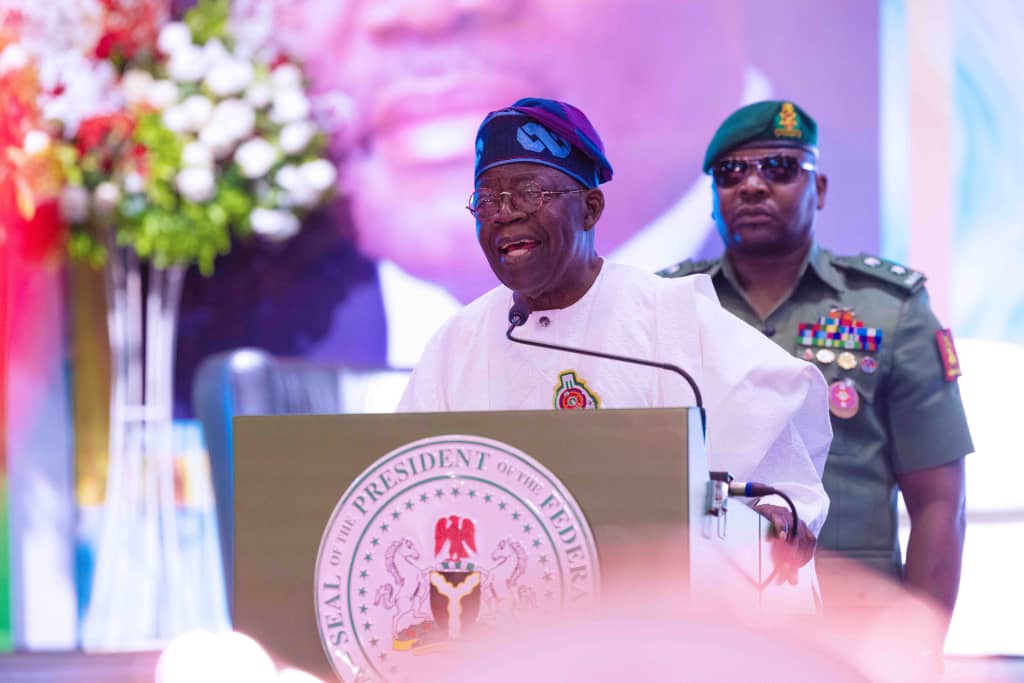In words and actions, Governor Siminalayi Fubara has shown that he is a good student of history and power dynamics. He has surprised and outsmarted his enemies and impressed his admirers with the manner he’s dealt with the political crisis in his state. So far, the governor has manoeuvred deftly through Nyesom Wike’s threats, combustive anger and the subtle intimidations of the presidency. I think we need to pay attention to Fubara’s strategy in the context of Nigeria’s politics of avarice, corruption and application of power to serve selfish interests. Fubara, we recall, was the state’s accountant-general when Wike was governor, and they worked together in managing and spending the resources of the state.
Last year, the EFCC suspected that there were some unethical practices in the manner they used these monies and so the commission moved to arrest Fubara who went into hiding. He was subsequently declared wanted by the EFCC. But to protect him, Wike made him the PDP governorship candidate and went ahead to get him elected governor. Fubara now has immunity from arrests and prosecution, but Wike, who was Fubara’s boss and knows everything about how Rivers’ funds were managed and mismanaged, has not been questioned by the EFCC. We have seen this play out in many states across the land, including my own Akwa Ibom, since 1999. In these arrangements, the outgoing governor would dictate how much he would be paid in cash periodically by his successor as a reward for facilitating his emergence, in addition to other perks and patronages. In return, the governor will take steps to discourage the arrest and prosecution of his predecessor. In addition, the former governor will assume the status of the ‘emperor’ of the land. But all too often, these agreements don’t last.
After a few months in office, Fubara repudiated the understanding he had with Wike (some accounts claim the former governor was receiving N2 billion monthly) and discontinued the payment. All hell broke loose and there began the crisis that has engulfed the state since October. Two weeks ago, President Bola Tinubu stepped in and invited both men for a peace meeting. The terms of the peace agreement seemed to favour Wike more, prompting many to term it as a presidential directive rather than an agreement.
Some persons who attended the peace meeting in the Villa actually said in interviews that it was only the president who spoke at the meeting; and that he was essentially directing the parties on what to do, after which they all signed the paper without as little as stating their own sides. Both Wike and Fubara however elected to stay silent until Boxing Day when the governor released a lengthy statement, in which he announced that he would abide by the terms of the proclamation because “the peace pact is not as bad as it is being portrayed by those who genuinely opposed it’’, adding that ‘’it is certainly not a death sentence’’.
Advertisement
Many persons interpret this to mean that the governor has finally capitulated, having been subtly intimidated by the president at the meeting, and that Wike would soon return to his former status as the emperor of the state. A well-known TV anchor actually told me that the governor ‘’is dumb’’. They are wrong. Unknown to them, Fubara’s motives, implicit in his Christmas message and evident in some of his actions, show that he is smarter than he’s given credit for. He seems to be taking some lessons from The 48 Laws of Power propounded by Robert Greene, the American author of books on strategy, power and seduction, 25 years ago. Fubara is dealing with this matter with a great deal of political astuteness and clever tactics. He says one thing in public but is stealthily undermining his enemies in secret. He has shown that he is a good student of history and power.
Law 3 of the 48 Laws of Power states: “Conceal your intentions: Keep people off-balance and in the dark by never revealing the purpose behind your actions. If they have no clue what you are up to, they cannot prepare a defence. Guide them far enough down the wrong path, envelop them in enough smoke, and by the time they realize your intentions, it will be too late.” By pledging to abide by the terms of the peace pact, when in fact, he does not mean it, Fubara is leading Wike and the president on the wrong path, keeping them guessing, while constantly digging into the trenches and undermining Wike’s moves. While those in Abuja see this as political disagreements, the governor and indeed, the Ijaw people of Rivers of whom Fubara is a scion, have turned it into an ethnic war. Their constant threats to bomb crude oil pipelines if the governor is impeached and removed from office should not be ignored. I am sure that President Tinubu is not taking those threats lightly. Between Wike and crude oil exports, I know whom the president will choose.
Fubara also seems to be taking the 12th Law of Power to heart. ‘’Use Selective honesty and generosity to disarm your victim. One sincere and honest move will cover over dozens of dishonest ones. Open-hearted gestures of honesty and generosity bring down the guard of even the most suspicious people. Once your selective honesty opens a hole in their armour, you can deceive and manipulate them at will. A timely gift – a Trojan horse – will serve the same purpose.” Paragraph 12 of the governor’s speech succinctly captures this selective act of honesty. His words: ‘’I reaffirm my acceptance of the Presidential Peace Pact Proclamation and my commitment to implementing both the spirit and letters of the declaration…without compromising the collective interest of our people and our cherished and shared democratic values.” Who determines what the interest of Rivers people are and what are the cherished and shared democratic values? Does the interest of Rivers people entail illegal payments of monies to a former governor? Is it part of shared and cherished democratic values for the governor to remain subservient to his predecessor? In other words, only Fubara will determine what constitute the collective interest of his people and their cherished and shared democratic values.
Advertisement
The governor is also drawing on the 21st Law which states that: ‘’Play a Sucker to catch a sucker – seem dumber than your mark. No one seem stupider than the next. The trick, then, is to make your victims feel smart – and not just smart, but smarter than you. Once convinced of this, they will never suspect that you may have ulterior motives.” By constantly calling Wike ‘’my Oga’’ and pretending to be compliant and respectful, Fubara is playing the fool, a tactic well captured in paragraph 14 of his speech: ‘’I have said before, there is no price too much to pay for peace. And with the realization that the worst peace is better than the best war, we will try to make peace with all segments and interest groups without surrendering our freedom or jeopardizing the interest and well-being of the good people of Rivers State who graciously entrusted us with their cherished mandate.”
It is notable that the governor is constantly referring to the ‘’interest of Rivers people’’, and his condition for keeping to the agreement is that ‘’it must not violate the interest of Rivers people’’. And who defines these interests? It is the governor himself! This is similar to what happens when the United States invades another country to protect its own national interest. Only America defines what its national interest is!
Law 33 states that: ‘’Discover each man’s thumbscrew. Everyone has a weakness, a gap in the castle wall. That weakness is usually an insecurity, an uncontrollable emotion or need; it can also be a small secret pleasure. Either way, once found, it is a thumbscrew you can turn to your advantage.” Nyesom Wike’s weakness is his greed and inordinate ambition to control his successor. Fubara realises this and is misleading the FCT minister into hoping that he would keep to the agreement. While Wike is hoping against hope that the billions will flow again, the governor is winning more and more supporters, including those who hitherto loathed him, to his side. Sooner than later, Wike’s ‘’structures’’ will collapse like Lagos buildings.
Unfortunately, Wike has flouted Law 34: ‘’Be loyal in your own fashion: Act Like a king to be treated like one. The way you carry yourself will often determine how you’re treated: In the long-run, appearing vulgar or common will make people disrespect you. A king respects himself and inspires the same sentiments in others. By acting regally and confident of your powers, you make yourself seem destined to wear a crown.”
Advertisement
Frankly, Nyesom Wike has disgraced himself before the country by allowing his covetousness and greed to overwhelm him. By acting comically and desperately, he has exposed himself to ridicule and scorn. Now, compare Wike’s conduct to that of Senator Godswill Akpabio after he fell out with Gov. Udom Emmanuel in 2016. Akpabio simply walked away and later moved to another party in 2018.
If Akpabio had not walked away from his successor when their fight started, he would not be senate president today. What of Umo Eno and his predecessor, Udom Emmanuel? Although Udom Emmanuel has succeeded in putting Eno in office as governor, the two men seem to be managing the relationship in a fairly decent manner, and so far, the terms of their agreements have not been breached. Surely, Wike has a lot to learn from others while we have a lot to learn from Fubara.
Views expressed by contributors are strictly personal and not of TheCable.







